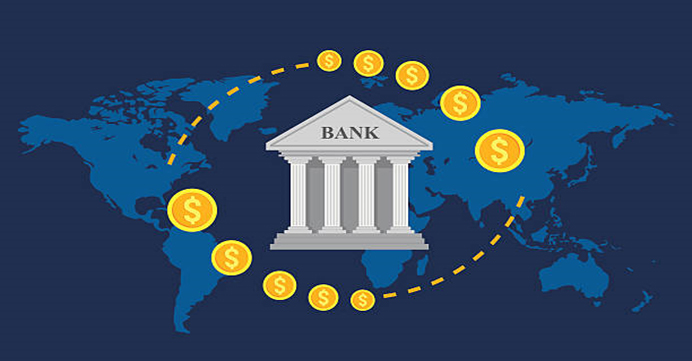
Introduction: Why AI Readiness Is the New Currency of Competition
In the global financial race, artificial intelligence (AI) is no longer a luxury—it’s a competitive necessity. Banks worldwide are rushing to embed AI into everything from customer service to fraud prevention. But AI readiness—the ability to adopt, scale, and govern intelligent systems—is what separates leaders from laggards.
Across borders, the approaches vary. In tech hubs like Singapore, the US, and the UK, AI innovation is rapid but highly regulated. Meanwhile, in the Gulf Cooperation Council (GCC), banks are experimenting boldly, often leapfrogging traditional steps.
The question isn’t whether AI is coming to banking—it’s which regions are ready to make the most of it, and how companies like Advisory Group are helping banks in the Middle East close the gap.
Where Does the GCC Stand on AI in Banking?
The GCC, led by the UAE and Saudi Arabia, is one of the fastest adopters of AI technologies in banking. Governments are actively promoting AI-first agendas—like the UAE’s National AI Strategy 2031—and banking regulators are pushing for smarter compliance and customer-centric innovations.
Strengths:
- State-backed digital transformation agendas
- Young, tech-savvy population
- Appetite for mobile-first and AI-powered services
- Rapid investment in digital infrastructure
Gaps:
- Lack of AI-specific regulations and ethical guidelines
- Limited talent pool in data science and AI engineering
- Dependence on foreign tech vendors
- Fragmented readiness across banks and countries
GCC banks are ready to run, but the road needs clearer signs and stronger support structures.
Global AI Leaders in Banking: Who’s Ahead?
Singapore:
Banks use AI for dynamic risk profiling, customer journey prediction, and compliance automation. The Monetary Authority of Singapore (MAS) has set strict but forward-thinking AI governance guidelines.
United States:
Banks like JPMorgan Chase and Bank of America use AI for contract review, fraud detection, and even personalized financial coaching through AI-powered apps.
United Kingdom:
UK fintechs lead in explainable AI, focusing on transparency and ethics, especially for credit scoring and lending.
China:
Leads in AI scale, using facial recognition, alternative credit scoring, and robo-advisors across urban and rural regions.
Key Differences: GCC vs. Global Markets
| Factor | Global Banks | GCC Banks |
| Regulations | Strong AI ethics & data laws | Evolving, with gaps in AI-specific policy |
| Talent Pool | In-house AI teams, academia links | Dependent on outsourcing, limited AI research |
| Consumer Behavior | Mature digital use, cautious | Rapid adoption, high trust in tech |
| Innovation Models | Lab-driven, gradual | Fast-track pilots, gov’t-backed sandboxes |
| Localization | Built for diversity | Struggles with language, culture fit |
Advantages of AI in GCC Banking
- First-mover benefit in a less saturated market
- Fewer legacy systems—more room to build clean, AI-native platforms
- Regulatory support for digital transformation
- High smartphone penetration enables real-time, AI-based customer engagement
Challenges for GCC Banks to Overcome
- Lack of standardization in data formats and tech infrastructure
- Fragmented regulatory updates across countries
- Skills gap in AI development and deployment
- Need for local, Arabic-first AI interfaces
- Public trust in AI systems still forming
These challenges slow down scalability—even when vision and budget are available.
Cultural and Regional Considerations
In the GCC, AI in banking must navigate a rich cultural, linguistic, and religious landscape. It’s not just about intelligent tech; it’s about intelligent alignment with:
- Arabic language processing and localization
- Shariah-compliant financial practices
- Names and document structures specific to Gulf identities
- Digital trust dynamics unique to the region
Global AI solutions often fall short here. That’s where localized platforms like Advisory Group step in.
How Advisory Group Bridges the AI Readiness Gap
| Feature | Benefit |
| Modular AI tools | Fast deployment without IT overhaul |
| Local language support | Better UX and customer trust |
| Smart compliance engines | GCC-specific regulatory coverage |
| Cloud-based AI stack | Scalable, secure, and cost-effective |
| Training + support | Upskilling local teams to manage AI long-term |
Advisory Group ensures that AI isn’t just added to banking—it becomes a competitive foundation.
What GCC Banks Can Learn from Global Leaders
- Invest in AI governance now, not later
- Build in-house AI capability, not just vendor dependency
- Collaborate with fintechs and universities for AI research
- Create explainable AI models—trust depends on transparency
- Prioritize inclusive and ethical AI across cultures and use cases
GCC banks can lead not by copying—but by learning and adapting wisely.

Conclusion: Global Inspiration, Local Intelligence
The future of banking isn’t one-size-fits-all. While global institutions bring frameworks and scale, GCC banks bring speed, adaptability, and vision.
To compete globally, banks in the UAE, Saudi Arabia, Qatar, and beyond must close the readiness gap with smart, localized AI systems.
With partners like Advisory Group, the region’s banks don’t just join the AI revolution—they shape it in their own language, culture, and values.
Because true AI readiness is not about being the biggest—it’s about being the smartest where it matters most.







